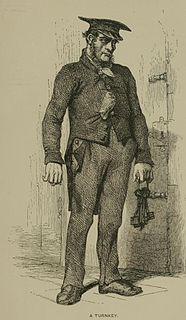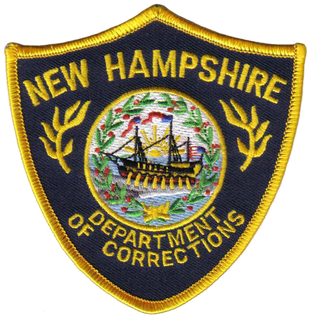Vinelink.com (VINE) is a national website in the United States that allows victims of crime, and the general public, to track the movements of prisoners held by the various states and territories. The first four letters in the websites name, "vine", are an acronym for "Victim Information and Notification Everyday". Vinelink.com displays information, based on the information provided by the various states' departments of correction and other law enforcement agencies, on whether an inmate is in custody, has been released, has been granted parole or probation, or has escaped from custody. In some cases, the website will reveal whether a defendant has been granted parole or probation, but then subsequently violated conditions of their release and become a fugitive. [1] Information provided on Vinelink.com represents metadata, in that the website lists a defendant's custody status; but does not list what the individual is charged with, their criminal history, or the amount of their bail, if applicable.

The United States of America (USA), commonly known as the United States or America, is a country comprising 50 states, a federal district, five major self-governing territories, and various possessions. At 3.8 million square miles, the United States is the world's third or fourth largest country by total area and is slightly smaller than the entire continent of Europe. With a population of over 327 million people, the U.S. is the third most populous country. The capital is Washington, D.C., and the most populous city is New York City. Most of the country is located contiguously in North America between Canada and Mexico.

Territories of the United States are sub-national administrative divisions overseen by the United States federal government. The various U.S. territories differ from U.S. states and Native American tribes in that they are not sovereign entities. They are classified by incorporation and whether they have an "organized" government through an organic act passed by Congress. All U.S. territories are part of the United States, but unincorporated territories are not considered to be integral parts of the United States, and the U.S. constitution only applies partially in those territories.

Metadata is "data information that provides information about other data". Many distinct types of metadata exist, including descriptive metadata, structural metadata, administrative metadata, reference metadata and statistical metadata.
Contents
Internet users accessing the Vinelink.com website choose from a map of states and provinces within the United States where they wish to perform a search for an inmate. The user may then search for an individual using the inmate's or parolee's name, or by entering the inmate's specific department of corrections inmate number, if known. When the inmate's custody status changes, users who have registered to be notified of such changes will be notified via email, phone or both. [2] This information is currently released upon request, without the website requesting reasons for the users search or requiring payment, as public records available to the general public.

The Internet is the global system of interconnected computer networks that use the Internet protocol suite (TCP/IP) to link devices worldwide. It is a network of networks that consists of private, public, academic, business, and government networks of local to global scope, linked by a broad array of electronic, wireless, and optical networking technologies. The Internet carries a vast range of information resources and services, such as the inter-linked hypertext documents and applications of the World Wide Web (WWW), electronic mail, telephony, and file sharing.
Public records are documents or pieces of information that are not considered confidential and generally pertain to the conduct of government.
Inmate information is available for most states, and for Puerto Rico, on the website. The states of Arizona, Georgia, Massachusetts, Montana, New Hampshire and West Virginia provide very limited information on the site. The states of Maine and South Dakota do not participate in the VINE system. [3] The website does not provide data on prisoners detained by the United States federal government.

Puerto Rico, officially the Commonwealth of Puerto Rico and briefly called Porto Rico, is an unincorporated territory of the United States located in the northeast Caribbean Sea, approximately 1,000 miles (1,600 km) southeast of Miami, Florida.

Arizona is a state in the southwestern region of the United States. It is also part of the Western and the Mountain states. It is the sixth largest and the 14th most populous of the 50 states. Its capital and largest city is Phoenix. Arizona shares the Four Corners region with Utah, Colorado, and New Mexico; its other neighboring states are Nevada and California to the west and the Mexican states of Sonora and Baja California to the south and southwest.

Georgia is a state located in the southeastern region of the United States. Georgia is the 24th largest in area and 8th-most populous of the 50 United States. Georgia is bordered to the north by Tennessee and North Carolina, to the northeast by South Carolina, to the southeast by the Atlantic Ocean, to the south by Florida, and to the west by Alabama. Atlanta, a "beta(+)" global city, is both the state's capital and largest city. The Atlanta metropolitan area, with an estimated population of 5,949,951 in 2018, is the 9th most populous metropolitan area in the United States and contains about 60% of the entire state population.








